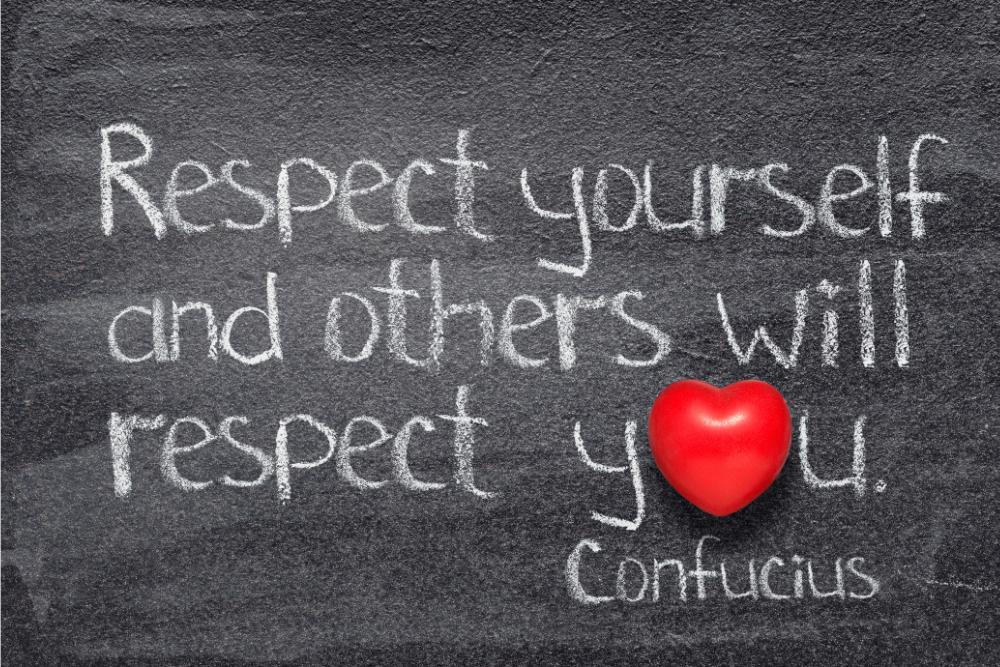Only a person who affirms consciously his obligation to respect himself would understand the real meaning of humility. True humility does not disparage the individual. It elevates him.
As the Quran teaches, the real servants of the Merciful Maker are those who walk humbly on earth. The respect that is due to one’s self does not entitle a person to exult in his own importance. His importance is not a matter of a claim to be exacted or enforced; it results by devoting his existence, as finite being and a creature bound up by space and time, to a purpose bigger than himself. His job is to define his role and play it within the law of his being. Self-respect exists only when an individual does the right because it is right, regardless of any unsavoury consequences. The rest is the delusionary conceit fuelled by ego. Respect lies in honour distinct from fear and greed. Let me begin with the following immortal message of Lord Tennyson in his dramatic monologue ‘Oenone’ when Pallas offers her gifts to Paris and he refuses no matter how much Oenone wishes that he would have accepted.
“Self-reverence, self-knowledge, self-control,
These three alone lead life to sovereign power.
Yet not for power (power of herself
Would come uncall’d for) but to live by law,
Acting the law we live by without fear;
And, because right is right, to follow right
Were wisdom in the scorn of consequence.”
Carlyle emphasizes that respect for others and the sentiment of reverence plays an important role in the development of human character. He describes Reverence as “Honour done to those who are greater and better than ourselves; honour distinct from fear. It is the soul of all religion that has ever been among men, or ever will be.” I think a man who learns to respect others is inwardly free. One who cannot truly respect others is a blinkered, egocentric, and self-important person who bows to his own passing whims and fancies. Our liberty does not consist in being free from all control, instead it consists in a voluntary submission to the universal law of life. A man who does not respect those around him has not evolved beyond the animal stage of life’s evolution and is too involved in the mere animal will-to-live. He is likely to pursue the monetary impulses of his biologic being but does not know happiness in the real sense of that word. Sacrifice of self is the only road to fulfilment just as a seed sacrifices itself to become a flower. Albert Schweitzer describes it beautifully when he says: “Just as the wave cannot exist for itself but always in the experience which is going all round me. It is an uncomfortable doctrine which the ethic whispers in my ear. You are happy it says; therefore you are called upon to give much. Whatever more than others you have received in health, natural gifts, working capacity, success, a beautiful childhood, harmonies, family circumstances, you must not accept as being a matter of course. You must pay a price for them. You must show more than average devotion to life.”

In order to surpass the limitations of our being we must first acknowledge them by recognizing and respecting our parents, our mentors, and the moral standards and civic laws of the society. An attitude of respect for others is where the urge for moral and spiritual regeneration begins and helps us escape the obligations and curbs of blind prejudices peculiar to man. Goethe aptly emphasizes that no education is possible for a person unless he starts by adopting this basic attitude to the problem of his personal life. For him the inculcation and preservation of the attitude of sentiment of respect is a matter of paramount importance as explained in the eternal word of the Bible: “When the salt shall have lost its savour wherewith shall it be salted?”
Being technology-savvy, the ability to write software and invent gadgets, or to make money in life are valuable attainments indeed, but they are not enough to enrich our humanity or to advance our evolution. Without discounting the comforts it brings, one problem with our increasingly impersonal, technology-driven, and web-based society is that no emphasis is being laid on the role the inter-human skills play in the development of human personality. While an empty politeness is inculcated, the culture of sentiment of respect is neglected in our schools as the kids are conditioned to become more aggressive and ambitious as they advance in growth. The self-serving approach is hailed as productive and reverence is considered as dull.
Here a memorable incident from the history of ancient Greece comes to my mind. The Athenian judges condemned Socrates in 399 BCE to die by drinking a cup of hemlock. He was found guilty of corrupting the youths, of having denied gods, and having conspired against the government of the day. Even his accusers knew that Socrates was innocent of the charges levelled against him. Plato recounts in ‘Crito’ how an old and reliable friend visits Socrates in prison the night before he was to die and urges Socrates to allow his friends to bribe the jailor for his escape to a safe place. Socrates refused to buy his liberty in the manner suggested because in securing his liberty in this manner, he would have disrespected his duty to the laws of his country. Socrates said even though he was convicted under the law by its dishonest professors, in fleeing in this manner he would be setting a dangerous precedent of undermining the laws’ authority. Socrates believed that without showing an unqualified allegiance to the law, the existence of a well-ordered society cannot be sustained. As Ali Ibn Abi Talib once explained to Muawiyah, there is no dishonour for the sufferer in innocence, a victim of injustice. The dishonour is reserved for the doer of the evil. Socrates’s immortal words continue to resound through all ages: “Leave me then Crito to fulfil the will of God, and to follow whither He leads.” We can see all around us what happens in the countries where the authority and sanctity of the country’s law is flouted by its people.
Rabindranath Tagore used to say that, in order to make a process co-extensive with life, education has to be based on the law of personal sympathy. A good teacher is one who influences his students by his being and not by merely imparting information to them, being to students what sunshine is to plants. Tagore explains that “His real function is not to explain meanings but to knock on the doors of mind”. It is from their parents and teachers that the young minds learn to respect their own essential self and others around them. A young mind must learn to preserve his individuality in a manner that it mirrors the universal life. We must learn to not let the mist of personal importance impede the passage of the light of knowledge and wisdom. Every care must be taken that youth of a country is kept immune from the corruption of a false ideology, favouritism, and intrigue. (Woe betide Pakistan)

Let the young learn to surf the web to network and to assimilate the information and acquire all the knowledge they need, from the best institutions. Let them drill their minds and express their individuality. But let them also attain that internal discipline needed to keep the Will in them within proper confines. In the context of religious experience the supreme expression of respect is reserved for those who do not practice religion merely in the institutional sense but also seek a direct experience of living in unity with the pulse of Reality. Ali Ibn Abi Talib has explained that Man must approach his own powers and capacities and the grandeur and majesty of world around him with equal respect. It is a false philosophy that teaches that the body must be subjected to suffering in order for the spirit to triumph. Spirit best triumphs when it is assisted by a healthy body. In order to touch the furthest limits of our being we have to be at one with all that is within and without us. This is religious experience par excellence born out of the sentiment of respect for the Creator and the Creation in unison. To me, spirituality has no other content, not other meaning except this total purity – outward and inward.







